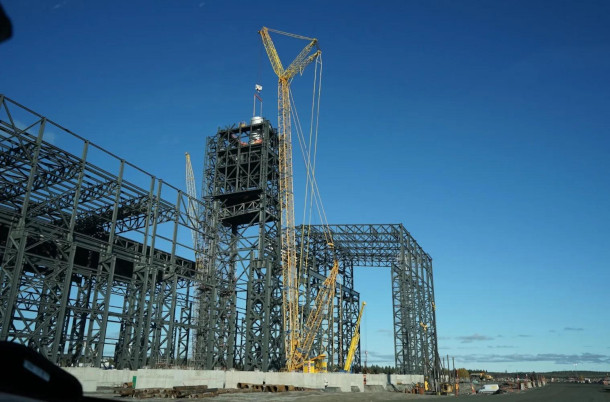Sweden's Green Steel Revolution: Reducing Carbon Footprint with Hydrogen Innovation
Key Ideas
- Steel production, a major carbon emitter, is being revolutionized in Sweden by companies like Stegra, using green hydrogen to drastically reduce carbon footprint.
- Stegra's $7 billion green steel production facility near Boden, Sweden, will produce fossil-free steel for various applications with almost zero CO2 emissions.
- The use of hydrogen in steel production is becoming more viable economically due to the EU's carbon trading system, making green steel competitive and attracting interest from car manufacturers like Volvo and BMW.
- Other Swedish steel companies like Ovako are also transitioning to hydrogen, reflecting the industry's shift towards cleaner production methods driven by environmental and economic factors.
In Sweden, the company Stegra (formerly H2 Green Steel) is leading a green steel revolution by using hydrogen instead of coal in steel production to significantly reduce carbon dioxide emissions. Steel production accounts for a substantial 10% of global CO2 emissions, mainly due to its reliance on coal. Stegra's innovative approach involves producing hydrogen from water using renewable energy sources, leading to a cleaner steelmaking process. The construction of a large-scale green steel production facility near Boden, Sweden, aims to produce fossil-free steel for various applications, from cars to household appliances, with minimal environmental impact.
The transition to green steel is not limited to Stegra, as other Swedish companies like Ovako are also embracing hydrogen in steel production. Ovako's conversion of some furnaces from natural gas to hydrogen showcases the industry's shift toward cleaner methods. The use of hydrogen in steelmaking is gaining traction economically, thanks to the EU's carbon trading system, which incentivizes companies to reduce greenhouse gas emissions.
With a carbon tax looming for traditional steelmakers, green steel produced using hydrogen is becoming more competitive. This has attracted interest from major car manufacturers such as Volvo and BMW, who are seeking sustainable steel sources for their production. The shift to green steel reflects a significant environmental and economic transformation in the steel industry, with Sweden at the forefront of this innovative change towards more sustainable production methods.
Topics
Green Hydrogen
Renewable Energy
Climate Change
Innovation
Carbon Emissions
Green Technology
Economics
Steel Production
European Union
Latest News
